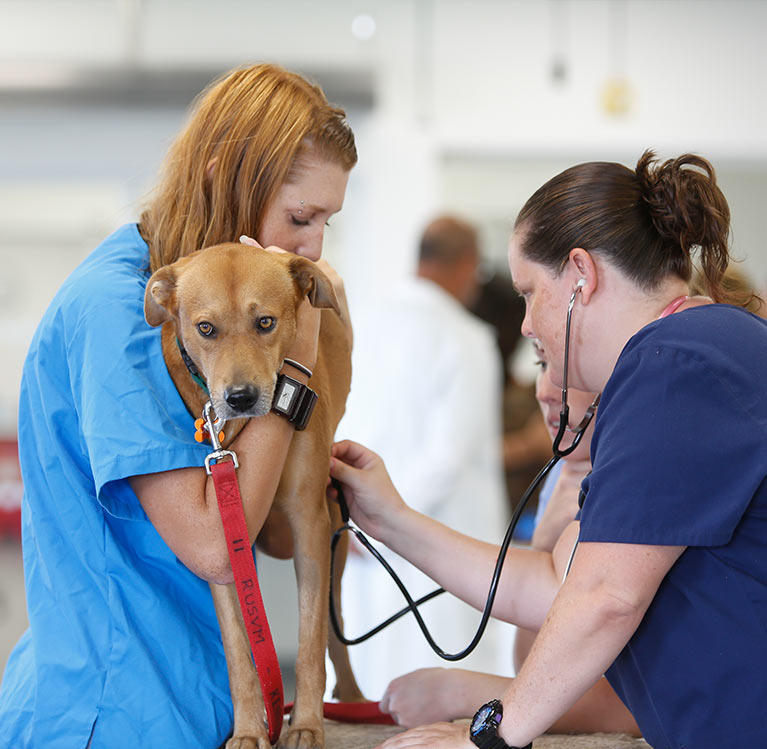How Pet Health Checkups Aid Discover Early Indicators of Disease and Maintain Your Pet Healthy
How Pet Health Checkups Aid Discover Early Indicators of Disease and Maintain Your Pet Healthy
Blog Article
Inoculation Standards From Your Relied On Vet
Inoculation standards offered by your trusted vet play an essential role in guarding your pet dog's wellness and health. Core vaccines are basic for all animals, while non-core injections can be tailored to environmental direct exposures and specific way of livings. Understanding the nuances of inoculation routines, which begin as very early as 6 to eight weeks, is important for ideal protection. Additionally, dealing with usual misconceptions surrounding vaccinations can further improve family pet owners' confidence in these safety nets. As we explore these critical aspects, it ends up being progressively clear why normal appointments with your vet are crucial for notified decision-making.

Importance of Inoculations
Vaccinations play a critical function in protecting family pets versus a series of preventable conditions. By stimulating the body immune system to acknowledge and deal with specific pathogens, injections dramatically reduce the incidence of transmittable conditions that can influence a pet's health and wellness and longevity. Not only do inoculations shield individual animals, but they likewise add to herd resistance, thus reducing the total occurrence of conditions in the pet populace.
Prompt vaccinations aid to minimize the spread of diseases such as rabies, parvovirus, and distemper, which can have extreme effects for both humans and pet dogs. Moreover, vaccinations are frequently a need for boarding centers, brushing solutions, and dog parks, making them essential for those that want to socialize their animals.

Core Injections for Pet Dogs
While the certain inoculation demands of animals can vary based on specific aspects, core vaccinations are globally suggested to secure against the most usual and significant conditions (Veterinarian Enterprise). Core vaccines are those regarded vital for all family pets, no matter of their way of living or geographic place, as they secure versus possibly fatal and extremely infectious illnesses
For dogs, the core vaccines consist of those for canine distemper, parvovirus, adenovirus (hepatitis), and rabies. Adenovirus can result in liver disease, while rabies is a zoonotic disease that positions a risk to both people and pet dogs.
In felines, core vaccinations include feline panleukopenia, feline calicivirus, feline herpesvirus (rhinotracheitis), and rabies. Feline panleukopenia is a highly contagious viral condition that affects the body immune system and intestines. Calicivirus and herpesvirus are significant contributors to upper respiratory infections in pet cats, while rabies continues to be an essential concern for public health and wellness.
Seek advice from with your veterinarian to guarantee your pet dogs obtain their core inoculations on time.
Non-Core Vaccines Explained
Non-core vaccines are customized to address certain threats connected with a pet's direct exposure, lifestyle, and setting to particular diseases. Unlike core vaccines, which are generally advised for all family pets, non-core vaccinations are thought about based on private circumstances. These vaccinations are especially essential for animals that might encounter special microorganisms due to their geographical location, travel behaviors, or activities.
Instances of non-core vaccinations include those for Bordetella bronchiseptica, which is linked to kennel coughing, and Lyme illness, brought on by ticks. Animals that often communicate with various other animals, such as those in boarding facilities, canine parks, or grooming atmospheres, might take advantage of Bordetella inoculation. If you live in a location where Lyme disease is common, immunizing against this illness can be a prudent choice for outdoor-loving dogs.
Other non-core vaccines may consist of those for leptospirosis, canine flu, and feline leukemia, depending on the certain danger elements present. It is important to have i loved this a thorough discussion with your veterinarian regarding your pet dog's lifestyle and the prospective demand for these vaccines, ensuring a customized inoculation approach that finest safeguards your furry close friend.
Inoculation Set Up Summary

As pet dogs grow, it is essential to follow the advised booster vaccinations. Pet Vaccinations. For adult pets, core vaccines are typically given each to 3 years, depending on the particular injection and local regulations. Non-core injections may be suggested based upon way of life factors and regional disease frequency, demanding a tailored approach
Routine veterinary exams are article source vital for updating vaccination timetables. Your vet can provide advice on one of the most suitable immunizations for your animal, considering age, wellness status, and ecological dangers. By staying proactive and informed, pet owners can guarantee their hairy companions receive efficient and prompt inoculations, thereby safeguarding their health and wellness and health throughout their lives.
Common Misconceptions Concerning Injections
Misunderstandings regarding pet dog inoculations can bring about confusion and unwillingness amongst pet dog owners pertaining to the immunization procedure. One widespread myth is that injections are unneeded for interior pet dogs. While it holds true that indoor animals face lower threats, they are not entirely unsusceptible to illness, as pathogens can be presented with various methods, including human apparel and other family pets.
One more misconception is that injections can create the illness they intend to avoid. Actually, the majority of vaccinations contain inactivated or undermined virus, which can not create disease in healthy animals. Some animal owners also believe that their pet dogs must not be vaccinated if they are currently healthy and balanced; however, vaccinations are an aggressive step that helps prevent the beginning of health problem.
Furthermore, several pet dog proprietors fear that vaccinations will certainly lead to lasting wellness complications. The benefits of inoculation-- securing pets from possibly serious conditions-- far exceed the threats.
Final Thought
In recap, adherence to vaccination guidelines is critical for making sure the wellness and durability of pets. Dispelling usual myths best site bordering vaccinations better enhances the relevance of informed decision-making in animal care.
Not only do inoculations safeguard specific pets, but they additionally add to herd immunity, thus lowering the total occurrence of diseases in the animal populace.
Misconceptions concerning family pet vaccinations can lead to confusion and reluctance amongst family pet owners regarding the booster shot process. While it's real that interior pet dogs deal with lower risks, they are not entirely immune to diseases, as virus can be introduced via numerous ways, including human clothes and various other family pets.
Some pet owners additionally believe that their animals should not be vaccinated if they are currently healthy; however, vaccinations are a positive procedure that aids prevent the start of ailment.
The advantages of vaccination-- protecting family pets from potentially lethal illness-- much surpass the dangers.
Report this page